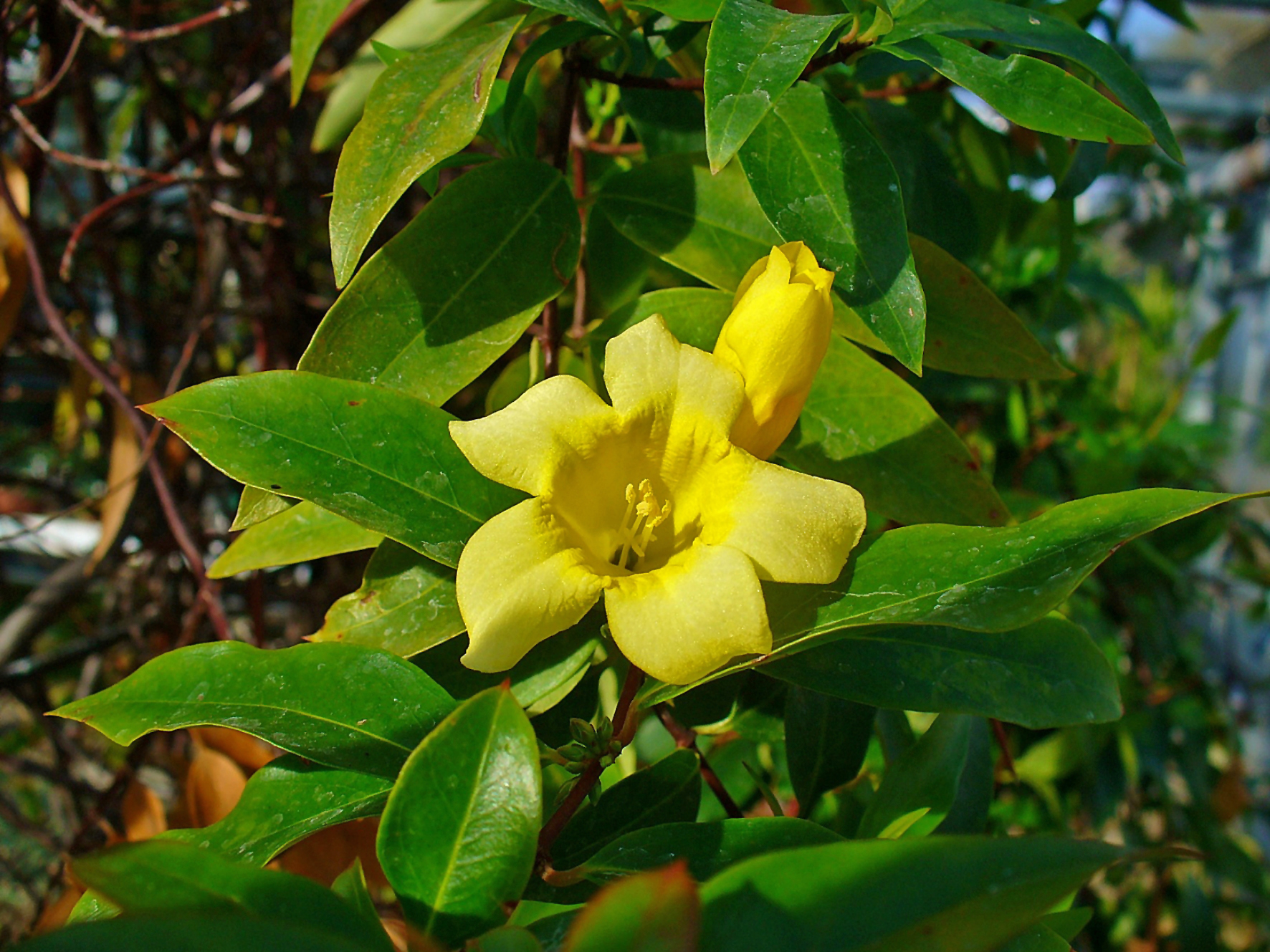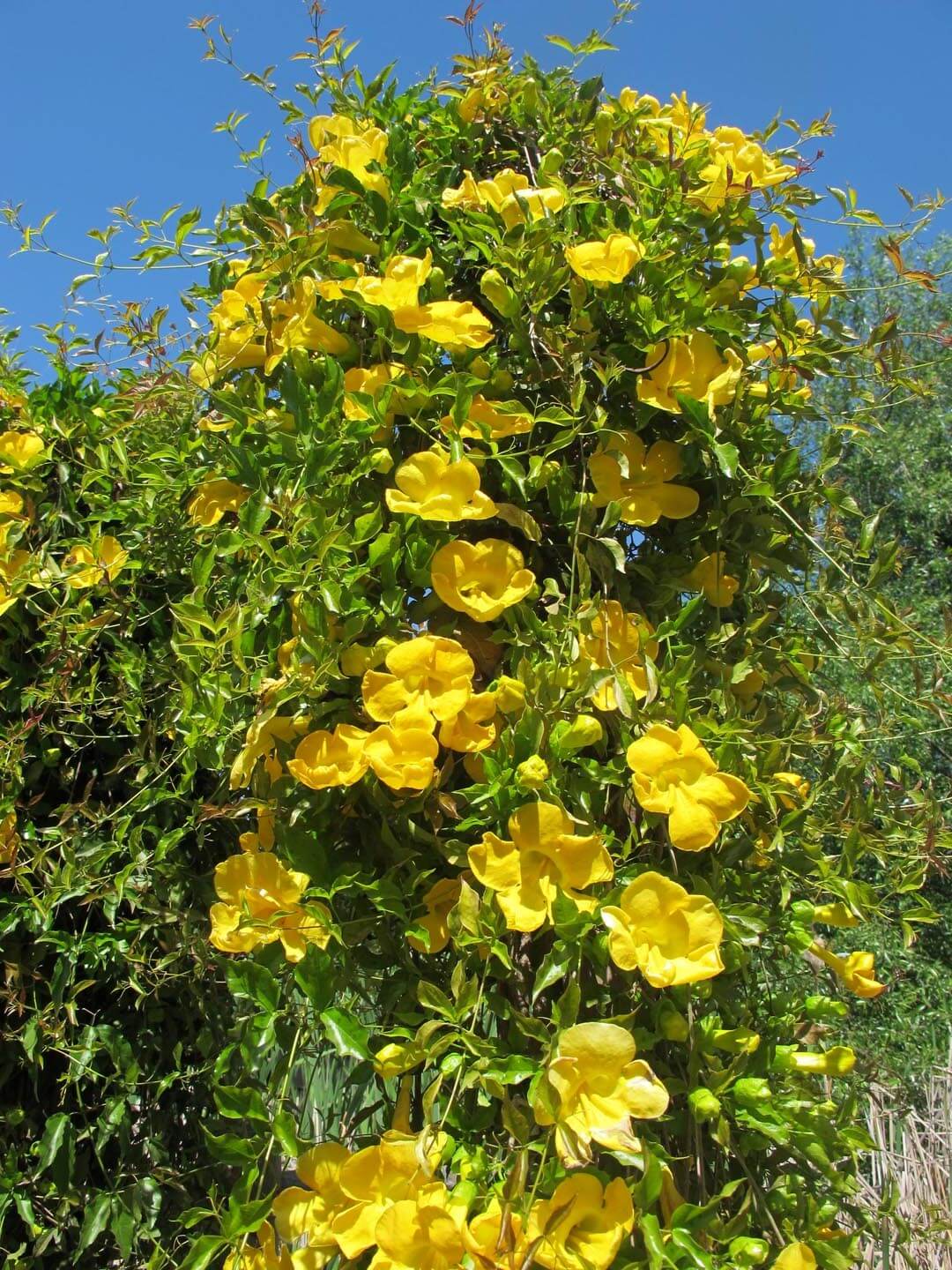Gelsemium sempervirens
szégyentelenek 4. évad 3. rész
GELSEMIUM - Uses, Side Effects, and More - WebMD">GELSEMIUM - Uses, Side Effects, and More - WebMD. Overview Gelsemium is a plant. Some people call it "woodbine." This can be confusing because American ivy and honeysuckle are also known as "woodbine." If you want gelsemium, look for its.
zöldség palánta webáruház
. Gelsemium sempervirens is a twining vine in the family Gelsemiaceae, native to subtropical and tropical America: Honduras, Guatemala, Belize, Mexico (Chiapas, Oaxaca, Veracruz, Puebla, Hidalgo), and southeastern and south-central United States (from Texas to Virginia).. Gelsemium sempervirens - North Carolina Extension Gardener Plant Toolbox">Gelsemium sempervirens - North Carolina Extension Gardener Plant.. It was named the state flower of South Carolina in 1924
gázvezeték szerelés
. It is best grown in moist, organically rich, well-drained soils in full sun. Although it will tolerate light shade, best flowering and growth occur in sun. It tolerates wind and is moderately tolerant of salt, wet soil, or short periods of drought.
bambusz mintás fürdőszoba csempe
. How to Use Gelsemium sempervirens - The American Association of .">How to Use Gelsemium sempervirens - The American Association of.
hason alvó párna
. Gelsemium sempervirens is a plant substance, commonly known as yellow jasmine, native to tropical and subtropical Americas. The traditional herbal use was for a number of neurological and dermatological problems including measles, ear pain, dysmenorrhea, headaches, muscle pain, and anxiety.. Gelsemium – Homeopathic Medicine: Its Uses, Indications and Dosage">Gelsemium – Homeopathic Medicine: Its Uses, Indications and.. Gelsemium as a remedy is prepared from the bark of the root of plant Gelsemium Sempervirens, commonly known as Yellow Jasmine. It belongs to family of flowering plants known as Loganiaceae. To prepare homeopathic medicine Gelsemium, the bark of the root of this plant is potentized (a process by which homeopathic remedies are prepared).. Gelsemium sempervirens (Carolina Jessamine) - Gardenia">Gelsemium sempervirens (Carolina Jessamine) - Gardenia. Spectacular in bloom, Gelsemium sempervirens (Carolina Jessamine) is an evergreen twining climber boasting a profusion of sweetly scented, butter-yellow or deep golden-yellow, trumpet flowers, 1.5 in
suzuki speciál használtautó nyíregyháza
. across (3 cm). They bloom in late winter to early spring, with occasional sporadic bloom in fall.. Gelsemium sempervirens - Plant Finder - Missouri Botanical Garden">Gelsemium sempervirens - Plant Finder - Missouri Botanical Garden
gmail belépés ingyenes tárhely
. Gelsemium sempervirens, commonly called false jasmine or false jessamine, is an evergreen twining vine that is native from Virginia to Florida west to Texas and Central America
mosógép 8 kg
. It is typically found in open woods, thickets and along roads.. Carolina Jessamine | Home & Garden Information Center">Carolina Jessamine | Home & Garden Information Center. Carolina jessamine ( Gelsemium sempervirens) is one of the most beautiful vines of the South
szemhéjplasztika győr
. It covers fences and trees in open woodlands and along roadsides throughout the Southeast with its slender vines and bright yellow flowers. It is the state flower of South Carolina.
watchmen idézetek
. Carolina Jessamine, Gelsemium sempervirens, Monrovia Plant">Carolina Jessamine, Gelsemium sempervirens, Monrovia Plant. Description. Prized for its spectacular display of fragrant, bright yellow flowers, this well-mannered vine climbs beautifully on a trellis, arbor or over fences and walls without smothering surrounding trees and shrubs. Allow to sprawl unsupported across slopes and banks as an informal, mounding ground cover

